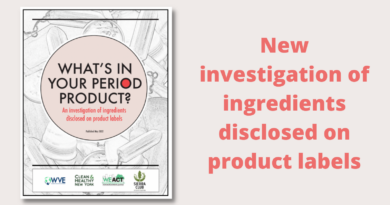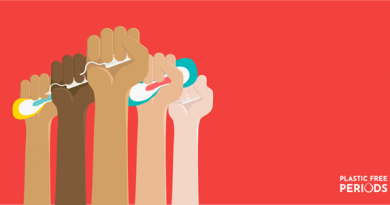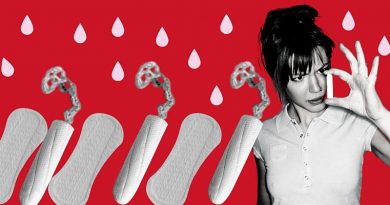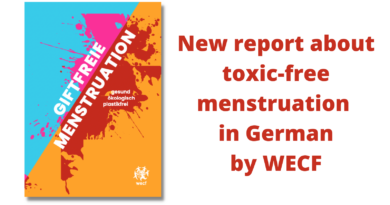Tests find nanomaterials in menstrual panties
Test of AVICENN finds nanosilver in menstrual panties.

Test of AVICENN finds nanosilver in menstrual panties.

NGOs investigated the impact of disclosure chemicals on menstruation products

Phthalates are plasticizer chemicals found in a variety of products designed for daily use.
Exposure to this class of chemicals has been associated with several adverse health effects

This video from WECF is intended to make it easier for menstruating people to switch to sustainable, plastic-free, and healthy

Toxic chemicals have no place in period products. Join the fight!

Test of AVICENN finds nanosilver in menstrual panties.

WECF Germany released a report in German language, adressing the use of sustainable, non-toxic, and plastic-free menstrual products.

In a country where some people don’t even make a dollar a day, a pad doesn’t really become a necessity, over something like food.

In a country where some people don’t even make a dollar a day, a pad doesn’t really become a necessity, over something like food.

Test of AVICENN finds nanosilver in menstrual panties.